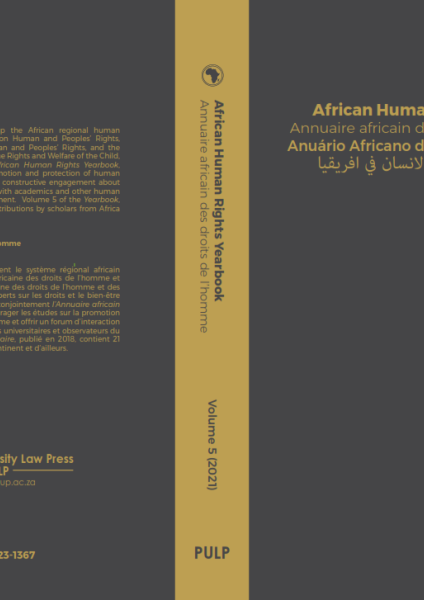African Human Rights Yearbook Volume 5 (2021)
- Type :
- Publications
- اللغة :
- إنجليزية
- Publisher :
Editorial
Our main theory, which in a way is a foundation on which we build our doctrine in a university environment, is based on the idea that human rights evolve in international organisations in order to protect individuals against the absolutism or omnipotence of states, which are none other than those that gave rise to them (from the point of view of legal positivism). This idea is at the heart of what we call the strange human rights loop theory.
Indeed, when we consider this theory, our thinking is set in movement and invariably ends up at the starting point, only to start again in the same direction, in a kind of ‘interlocking hierarchy’ between human rights, international organisations, individuals and states in which the dynamism of each element emanates from that of the other and feeds it permanently, thereby keeping the whole process alive. The strange human rights loop theory is also the foundation of the African Union, and is the supporting pillar of its institutional architecture;
Moreover, in my reflections on the interpretation of the African Charter on Human and Peoples’ Rights (Charter), I stated in an article during the 2020 lockdown that African regional human rights law has a dual standard, a two-headed structure with, on the one hand, the African Commission on Human and Peoples’ Rights and, on the other, the African Court on Human and Peoples’ Rights. These two institutions, which complement each other, regulate by themselves the relations between states (governments) and individuals.
In another article published during the same period, I articulated the idea that the science of human rights, which is the subject of this publication, comports a veritable science of government that is of interest to sociologists. This science of government holds that there are interactions between academic knowledge and bureaucratic practices, which interactions open the way to scientific activism.









